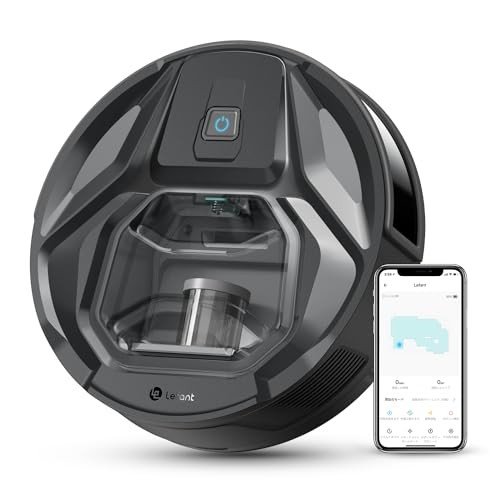Robotic Hoovers: The Future of Home Cleaning
Recently, robotic hoovers have actually quickly gotten appeal as a practical service for modern-day home cleaning. robot vac and mop provide efficient and effortless cleaning options, enabling house owners to preserve neat living spaces without the difficult effort typically related to vacuuming. This short article looks into the functions of robotic hoovers, their advantages, and considerations for prospective buyers.
What is a Robotic Hoover?
Robotic hoovers, frequently called robotic vacuum cleaners, are compact, automated devices created to tidy floors with very little human intervention. They use various technologies to browse around obstacles, find dirt, and adapt to various surface areas for ideal cleaning.
Secret Components of Robotic Hoovers:
| Component | Description |
|---|---|
| Sensing units | Assist in identifying barriers and cliff edges |
| Brushes | Enable reliable dust and debris removal |
| Vacuum Mechanism | Suctions dirt into a collection chamber |
| Battery | Powers the system for independent operation |
| Control Software | Makes it possible for navigation, scheduling, and cleaning mode modification |
How Do Robotic Hoovers Work?
Robotic hoovers resolve a mix of sensing units, electronic cameras, and expert system to browse and clean floors. Here's a general overview of their operation:
- Mapping and Navigation: Some advanced models use LiDAR innovation or cameras to produce a map of the cleaning areas. Basic models may operate utilizing bump sensing units, which trigger actions upon contact with challenges.
- Cleaning Patterns: Robotic hoovers frequently follow systematic cleaning patterns, such as zigzag or spiral, to ensure extensive protection. More sophisticated ones use algorithms to cover the entire location effectively.
- Dirt Detection: Many models are geared up with dirt detection technology that allows them to focus on particularly unclean areas before carrying on.
- Automatic Recharge: When the battery is running low, robotic hoovers immediately return to their docking stations to recharge, guaranteeing they are always prepared for the next cleaning cycle.
Benefits of Robotic Hoovers
Improved benefit is a leading benefit of robotic hoovers, but there are numerous other advantages worth thinking about:
- Time-Saving: Users can set cleaning schedules and leave the machine to do its work, enabling them to focus on other tasks.
- Consistent Cleaning: Robotic hoovers can preserve everyday or weekly cleaning regimens, resulting in regularly cleaner floorings.
- Multi-Surface Cleaning: Many designs are capable of cleaning a variety of surface areas, consisting of hardwood, tile, and carpet.
- Compact Design: The small size of robotic hoovers permits them to gain access to tight and hard-to-reach areas where conventional vacuums might struggle.
- Smart Features: Many robotic hoovers are now suitable with smart home systems, permitting users to begin and manage cleaning through smartphone apps or voice commands.
Disadvantages of Robotic Hoovers
Regardless of their many benefits, robotic hoovers also come with some disadvantages that potential buyers should keep in mind:
- Limited Suction Power: While they are efficient for regular maintenance, they might not replace traditional vacuums for deep cleaning.
- Maintenance Requirements: Users require to routinely empty dust bins, clean brushes, and change filters to maintain optimum performance.
- Cost Point: High-quality robotic hoovers can be significantly more pricey than standard vacuum cleaners.
- Reliance on Flat Surfaces: While innovative models can deal with some obstacles, steep shifts, extremely thick carpets, or cluttered rooms might position challenges.
Choosing the Right Robotic Hoover
When picking a robotic hoover, prospective purchasers must think about a number of essential aspects:
- Cleaning Needs: Consider the kinds of surfaces and the level of particles present in the home.
- Battery Life: Longer battery life enables for more comprehensive cleaning sessions.
- Navigation System: Opt for models with advanced mapping abilities if your home is big or complex.
- Smart Features: Determine if integration with wise home gadgets is a concern.
- Budget: Assess the balance in between wanted functions and affordability.
Popular Features to Look For:
- Self-emptying Dock: Some designs offer self-emptying dust bins, decreasing maintenance efforts.
- Virtual Barriers: This feature can keep the vacuum out of particular locations such as pet bowls or playing areas.
- Mop Functionality: Certain robotic hoovers can likewise mop floorings in addition to vacuuming, offering deeper cleaning.
FAQ Section
Q1: Do robotic hoovers deal with carpets?
Yes, many robotic hoovers are developed to clean up a range of surface areas, consisting of carpets. However, performance might differ based upon the specific design and type of carpet.
Q2: How regularly should I run my robotic hoover?
It is advised to run the robotic hoover a minimum of once a week for ideal home cleanliness. Nevertheless, many users discover worth in day-to-day cleaning.
Q3: Can I manage my robotic hoover remotely?
Lots of modern-day robotic hoovers included accompanying smart device apps that enable users to set up cleansings, track the vacuum's area, and manage its operations remotely.
Q4: What maintenance does a robotic hoover need?
Regular maintenance includes clearing the dustbin, cleaning brushes, and replacing filters as needed-- usually every 6 to 12 months.
Q5: Are robotic hoovers safe for animals?
Yes, a lot of robotic hoovers are safe for pets, but it's crucial to ensure they do not get stuck or tangled in the device.
Robotic hoovers represent a significant advancement in home cleaning innovation. While they may not entirely replace standard vacuum cleaners, their convenience and performance make them an appealing option for busy homes. By understanding their performance, benefits, and possible disadvantages, consumers can make educated choices when selecting a robotic hoover to improve their home cleaning routines.

